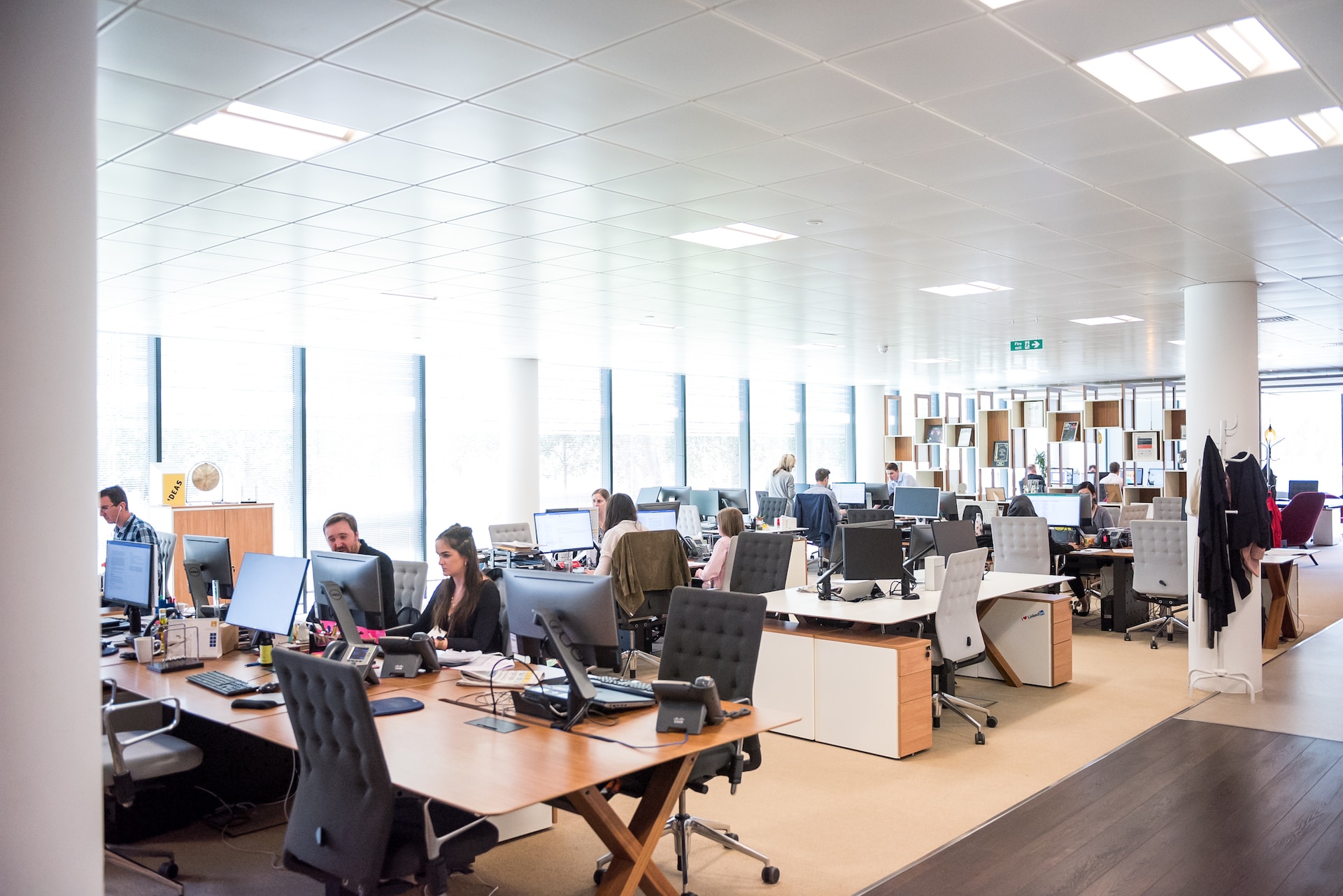The world of work is constantly evolving, and businesses must adapt to stay competitive. In this context, coworking has become an increasingly popular solution for many companies. This new working method offers many advantages, particularly in terms of contract flexibility. Indeed, the flexibility of coworking contracts is a major asset for companies looking to evolve and adapt quickly to market changes.
Coworking offers businesses the freedom to choose the length of their contract based on their specific needs. Unlike traditional office rental leases, coworking contracts offer great flexibility. Businesses can choose to rent workspace for as short as a few days, or as long as several months or even years. This flexibility allows companies to quickly adjust their workspace according to the evolution of their workforce, their projects or their objectives.
Additionally, coworking spaces often offer a variety of layout options to meet specific business needs. Whether private offices, shared offices or collaborative workspaces, businesses can choose the option that best suits their needs. This flexibility in workspace layout allows companies to create an environment suited to their culture and goals, thereby promoting productivity and collaboration among employees.
Additionally, the flexibility of coworking contracts allows businesses to reduce costs. By opting for a coworking contract, companies avoid the heavy initial investments linked to renting a traditional workspace. Additionally, the cost of renting a coworking space is often more affordable than that of a traditional office, providing businesses with significant savings. These savings can then be invested in other strategic areas of the business.
Another major benefit of the flexibility of coworking contracts is the ability to have a variety of additional services. In addition to workspace, many coworking spaces offer services such as access to meeting rooms, cutting-edge technology equipment, secretarial services, networking events, and more. These additional services allow companies to focus on their core business while enjoying the benefits of quality infrastructure and services.

Environmental impact of coworking
With the current global shift towards more sustainable solutions, coworking is also part of this trend, not only providing financial and operational benefits to businesses, but also contributing positively to the environment. By choosing to work in a coworking space, businesses have the opportunity to play a role in reducing their carbon footprint.
Joint use of resources is one of the main ways coworking spaces contribute to sustainability. Rather than having several individual offices each using their own electricity, heating and cooling, coworking spaces centralize these resources. This means more efficient energy consumption and reduced energy costs.
Coworking spaces are also often located in central urban areas, making it easier to access by public transport. This encourages less use of personal vehicles, thereby helping to reduce greenhouse gas emissions. Additionally, some spaces even go so far as to offer charging stations for electric cars or racks for bicycles, encouraging greener modes of transportation.
The concept of sharing is also at the heart of coworking. Instead of purchasing office supplies individually, coworking spaces often make them available to everyone. This not only reduces costs but also minimizes waste by avoiding overconsumption.
Finally, many coworking spaces adopt ecological practices in their daily operations. Whether it’s using recycled office supplies, implementing recycling programs, or using renewable energy, these spaces are often at the forefront of eco-friendly practices.
Networking and synergy in coworking
Beyond contractual flexibility and positive environmental impact, coworking also offers fertile ground for the creation of professional networks and synergy between workers. These are aspects that are often overlooked, but are essential for personal and professional development.
Coworking spaces bring together professionals from diverse backgrounds. Whether entrepreneurs, freelancers, start-ups or large companies, the unique blend of skills and experiences creates an ecosystem rich in collaboration opportunities. The diversity of talents within the same space allows you to exchange ideas, share knowledge and even form business partnerships.
Coworking spaces often organize workshops, seminars and networking events. These events not only enrich the skills of members, but also create opportunities to interact and build professional relationships. In a world where “who you know” is often as crucial as “what you know,” these opportunities are invaluable.
Another advantage is the mutual support and the motivation that members derive from each other. Working solo, especially as a freelancer, can sometimes be isolating. Being surrounded by people who are going through similar challenges, or who have already overcome these obstacles, can provide valuable perspective. Simple discussions during a coffee break can lead to innovative solutions or new ideas for a project.

The psychological benefits of coworking
Beyond the tangible benefits of coworking, there is a less visible but equally important dimension: the psychological impact of working in a shared space. At a time when mental health and well-being at work have become paramount topics, it is essential to recognize how coworking can positively contribute to the mental balance of professionals.
A sense of belonging
Working remotely or freelance can often lead to feelings of isolation. Coworking offers a remedy to this loneliness by providing an environment where individuals feel connected to a community. This sense of belonging can build self-confidence, provide a sense of security and boost motivation.
Work-life balance
Coworking spaces, through their design and functionality, help define a clear separation between work and home. For those who struggle to “unplug” from work at home, having a dedicated space can help establish a healthier routine, promoting a better work-life balance.
Creative stimulation
The dynamic and diverse environment of a coworking space can be a real source of inspiration. Being surrounded by professionals from different sectors and backgrounds encourages the exchange of ideas and varied perspectives, thus stimulating creativity.
Stress reduction
The ability to choose your work environment, whether it’s a quiet space for concentration or a more lively space for collaboration, gives workers some control over their workspace. This control can reduce stress and increase feelings of job satisfaction.
Personal development opportunities
Many coworking spaces emphasize personal development, offering workshops or training sessions in areas such as time management, communication or even well-being. These opportunities can help strengthen not only professional, but also personal skills.













